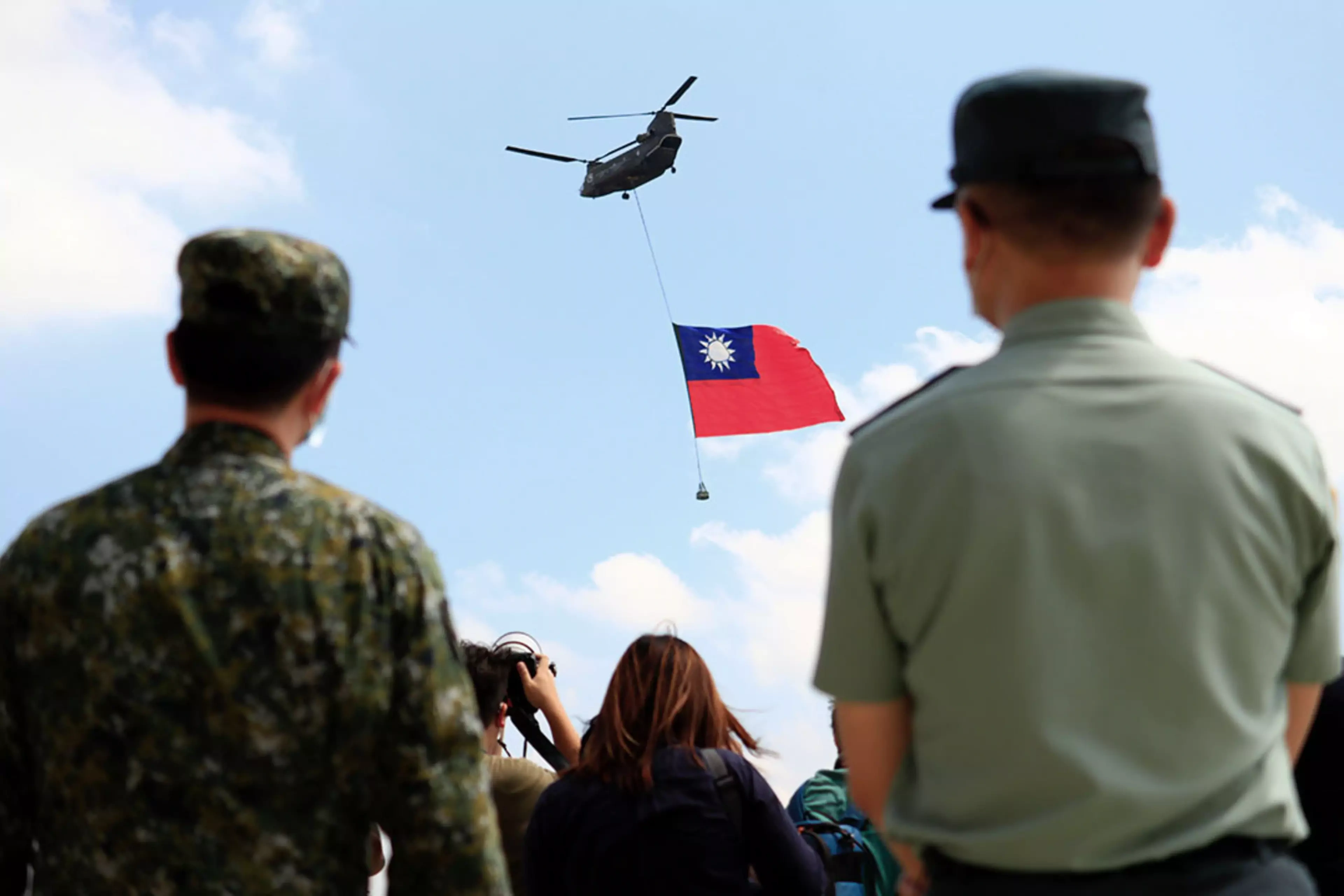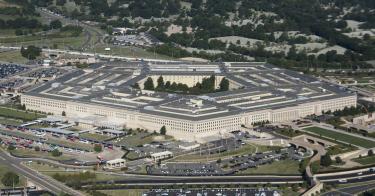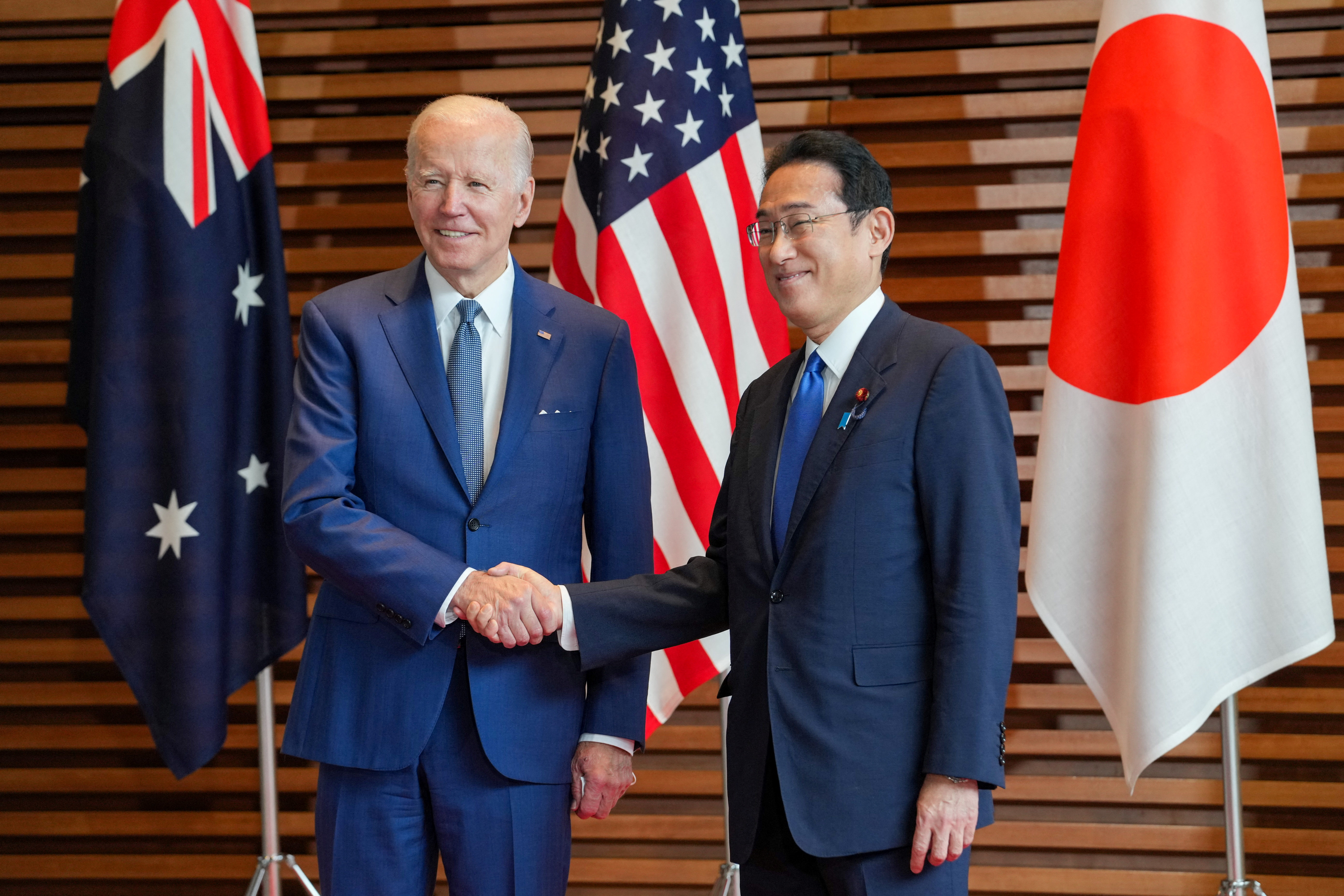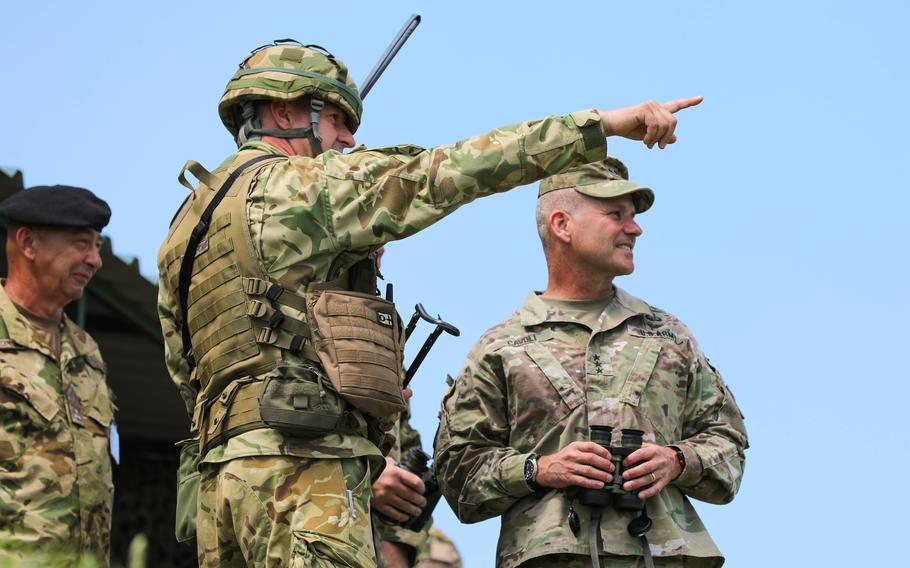Bernhard Zand
DER SPIEGEL: Professor Allison, five years ago you wrote: "However evil, however demonic, however dangerous, however deserving to be strangled Russia is, the United States must struggle to find some way to live with it." How can the U.S. and Europe live with Russia after Vladimir Putin’s invasion of Ukraine?
Allison: That Putin is a demon, I think hardly anyone denies. And anybody with a soul will agree that his behavior is outrageous and unacceptable. On the other hand, Putin remains the leader of a nuclear superpower that has an arsenal that is capable of destroying every person in the U.S. and every person in Europe. If you and I both have superpower nuclear arsenals and you do your best to attack and disarm me, I nonetheless still have the capability to erase your nation from Earth.
About Graham Allison
Graham Allison, 82, is one the leading political scientists in the United States. A security and nuclear expert, he served as the dean of the John F. Kennedy School of Government and director of the Belfer Center for Science and International Affairs at Harvard University. As the planning chief at the Pentagon, he coordinated the U.S. strategy toward the successor states of the Soviet Union after the end of the Cold War. Two books established Allison’s prominence beyond the academic community: In "Essence of Decision", published in 1971, he used the example of the Cuban Missile Crisis of 1962 to analyze the constraints and often unconscious motives of political decision-makers. In 2017’s "Destined for War", he coined the term "Thucydides’ trap" for the Chinese-American relationship: a geopolitical constellation between an established and a rising power that usually, but not always, ends in armed conflict.
DER SPIEGEL: A lesson we learned during the Cold War ...
Allison: ... and then forgot about. It was a lesson of madness, aptly described at the time as MAD – mutually assured destruction. Or, in another grotesque metaphor, though still not as grotesque as reality: It’s as if we wake up and we’re inseparable, conjoined Siamese twins, and neither can strangle the other without committing suicide.
DER SPIEGEL: What can we learn from this for living with Putin’s Russia?
Allison: That we will have to find a way to coexist. That was the challenge that we ultimately met in the Cold War. As uncomfortable, even unbearable as it may seem: Unless God helps us, lightning strikes and Putin dies – which would be great as far as I’m concerned – we’ll have to be ending a war with a demon. And that will remind us of how Roosevelt and Churchill sat down with Stalin who had killed 30 million people, or of Nixon’s meeting with Mao, who may have had killed even more. Dealing with really horrible leaders, even mass murderers to the extreme, is part of the history of international relations.
DER SPIEGEL: Do you consider Putin a "rational actor"?
Allison: There has been a debate about that, but my answer is yes. Putin is a rational actor in the sense of a person who is purposive, who’s calculating and who believes what he is doing is attempting to achieve an objective. He’s made a very bad calculation because he thought that somehow Ukraine was not as much of a country as it has turned out to be. He thought he could reabsorb Ukraine by killing President Volodymyr Zelenskyy or capturing him by sending special forces to Kyiv. But he was not alone in thinking that. Most of the Russian elite do not believe that Ukraine is a separate country. They believe in a mystical history of Russia and have not accommodated to the idea that Ukraine really wants to be an independent country. So, I don't take the fact that he made a fatal error, a big strategic mistake, as an absence of rationality, any more than I think George W. Bush's attack on Iraq in 2003 as a sign that it had been irrational. It was being dumb. It was a big strategic mistake. But that’s different.
DER SPIEGEL: In "Essence of Decision," your seminal analysis of the Cuban Missile Crisis, you argue that political leaders are not only guided by rational considerations but also constrained by internal politics, by their bureaucracies and by groupthink – especially during crises. Which factors do you think are guiding the actors in the Ukraine crisis?
Allison: We don’t know enough about what Putin thought he was doing and what his opportunities were. Putin has been very proud of rebuilding Russia’s military. He put a lot of money into his troops and they’ve shown themselves to be successful at fighting and winning. But that was either long ago, like in Chechnya, or in places like Crimea, where they hardly had to fire a weapon. So, the Defense Ministry may well have imagined that the invasion of Ukraine would be a cakewalk – like some in the Bush administration envisioned the invasion of Iraq. The Russian intelligence community also seems to have performed rather poorly.
"Our people at the highest levels of the U.S. government have been thinking about the question: Can Putin lose this war, and can he survive if it is an unambiguous loss?"
DER SPIEGEL: Is there any indication that conflicts within the Russian leadership preceded the invasion?
Allison: I don’t know. Putin has clearly sidelined anybody who could have been a potential threat. He is ruling autocratically and has been manipulating the minds of the people, making sure that all the people around him are very loyal. He has a pretorian guard of security guards who are independent from the security services, which shows his extreme caution. And he has ruled with a version of kleptocracy in which he’s had a number of extremely rich colleagues. As they become rich, some of them become a little bit more independent and spend half their time abroad. I’m sure that made him nervous, and it would be very interesting to one day scientifically analyze the motives that drove Putin. But I think he’s sufficiently powerful and had sufficient command authority that he could decide up to the last minute whether to order troops to go into Ukraine or not.
DER SPIEGEL: In the early days of the Cuban Missile Crisis, U.S. generals advised President John F. Kennedy to launch a massive, unannounced air strike on Cuba. What scenarios do you think the U.S. leadership is currently playing out?
Allison: Our people at the highest levels of the U.S. government, including at the Pentagon and the White House, have been thinking about the question: Can Putin lose this war, and can he survive if it is an unambiguous loss? I don't know what their answer is. My answer is no. He believes, accurately, that if he were to suffer an unambiguous loss, he would lose his position and likely be killed – think of Czar Nicholas II in 1917. And he would be remembered in Russian history as the person who lost Ukraine and maybe even revived the West. This is not a good alternative for him. So the main analytic point is: If he is forced to choose between losing and escalating the level of violence and destruction, then, if he’s a rational actor, he’s going to choose the latter.
DER SPIEGEL: And do what?
Allison: Putin has shown no compunction about killing people, even in massive numbers. We saw that in Grozny, and we are seeing it in Mariupol today. If we present him with an unambiguous choice between losing everything and taking a chance, we’ll have to reckon with the use of a tactical nuclear weapon. And that is a nightmare scenario. The use of a comparatively small atomic bomb of 15 or 20 kilotons, about the size of the Hiroshima bomb, could kill 20,000 to 50,000 people in one single act, depending on the size of the city it hits. This would break the nuclear taboo that has existed for more than 70 years – and we would be in a new reality.
DER SPIEGEL: How would the U.S., how would NATO respond to such an act?
Allison: Not by the use of tactical nuclear weapons, I believe. But you cannot not do something rather dramatic. If we were to respond for example by attacking inside Russia – the missile fields from which these Iskander missiles are fired – well, then you would have Americans killing Russians, and you’re on an escalation ladder that is very slippery. This scenario seems so incredible, so otherworldly, that most people can’t get their head around it. That’s why I think it’s so urgent that we find a way to stop the killing now. Because it brings us back to the central analytic point and the question of whether we should just take Putin and tell him he has a choice between losing everything and a chance of winning something.
DER SPIEGEL: What could this something be?
Allison: Something that would allow him to spin in his own mind a story – and maybe to his Russian citizens – that he’s won something. So he could say: I’ve consolidated our control of Donbas. We now have a land bridge to Crimea. Ukraine is not going to be a member of NATO for 15 years. President Zelenskyy has already spoken about that. We will, of course, know that Putin is suffering a strategic defeat – and we must ensure that he does. But it's important to give him a reason to stop the war.
DER SPIEGEL: A cease-fire, victory, a sustained weakening of Russian forces, even a hint of regime change: Washington has sent conflicting signals about what the U.S. wants to be the outcome of this war.
Allison: The Biden administration isn’t very good at explaining its policies, but it does have a fairly coherent view. My interpretation is that we have four interrelated war aims. Point one: Ukraine survives. Point two: No third world war. Point three: a decisive strategic defeat for Putin's Russia. And point four: strengthening the international security order.
DER SPIEGEL: Could you briefly walk us through this, point by point?
Allison: OK. Aim one means that Ukraine survives as a free and independent country. Notice I didn't say how much of its territory Russia is still occupying, but that Ukraine survives in such a way that in the future it's going to thrive. And in the future, it will get back its territory.
DER SPIEGEL: Point two?
Allison: No third world war. This means that no U.S. or NATO soldier kills a Russian – and vice versa. Incidentally, this war aim explains why NATO has been so disciplined so far, why there is no no-fly zone and no protection zones proclaimed by NATO.
DER SPIEGEL: Point three?
Allison: When this war is over, Russia and the world should realize that the cost of this invasion far outweighs its benefits and that Putin is critically weakened. Is NATO destroyed? No, it is stronger than ever. Are the U.S. and Europe divided, which is what Putin surely wanted? No, they are more united than before – and the states on Russia’s borders, the "threat" Putin said he was going to dispel, are better protected. So, I would say anybody looking at this would say: Putin may have thought he won something, but overall, he lost.
DER SPIEGEL: And point four?
Allison: This may sound a little polyannish, but in the end the international community will have shown that there are crimes under international law that simply cannot be accepted. And one of those is invading your neighbor in order to redraw boundaries or, in any case, doing it in such a brutal way. So, this is about turning Putin and his people into pariahs. We may still have to deal with them the way we had to deal with Stalin and Mao. But these people will no longer go shopping in Paris, own apartments in London or a yacht in Nice.
DER SPIEGEL: And what will happen to Ukraine?
Allison: The Ukrainians have shown themselves to be so courageous and so determined, they now have a moral claim on Europeans and Americans that they never had before. We’re going to be supporting them to the maximum extent in trying to build a successful country. So, if we manage to bring this conflict to an end without Putin escalating, it could be a great success.
DER SPIEGEL: Chancellor Olaf Scholz justified his reluctance to send heavy weapons to Ukraine by saying that he wanted to prevent a third world war . What do you think of this argument?
Allison: It is absolutely correct to ask yourself at every step up the escalation ladder what reaction this step might trigger. Not only Germany, but the U.S. and other allies did this. They all move up, but very cautiously, trying to make that calculation. You can never be quite certain which step will trigger what. Supplying arms that would allow Ukraine to launch attacks on Russian territory, for example, would greatly increase the risk of escalation. It is therefore very sensible to question oneself carefully and in detail when taking such steps.
DER SPIEGEL: Others say Putin’s nuclear threats are part of his warfare – tactical attempts at intimidation. The West should not be bluffed.
Allison: That’s a very good rhetorical argument that you sometimes hear in the American debate as well. But it often comes from people who don’t really know the risk they’re dealing with here. It is not sensible to take a chance.
DER SPIEGEL: From an American perspective, Putin is almost completely isolated. However, Moscow has a de facto ally in China. How will the Ukraine war change the relationship between the U.S. and China?
Allison: Let's imagine if, before meeting Vladimir Putin in early February, China’s leader Xi Jinping was presented with two charts: one representing the advantages, and one the disadvantages for China if Putin invaded Ukraine. The biggest benefit from China's perspective is that Russia’s actions in Ukraine and its threat to Europe will become the focal threat that consumes all of America’s attention. And given that Americans have trouble thinking about more than one problem at a time, this will suck all the oxygen out of our concerns about China. And since the one thing China wants most from the U.S. right now is neglect – that’ll do it.















:quality(100)/cloudfront-us-east-1.images.arcpublishing.com/thesummit/CMKS35VH2BC53ERPQMYOGAGBJA.jpg)